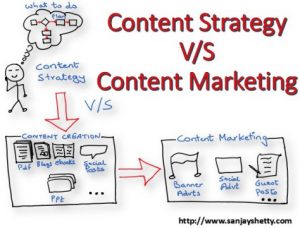
With the amount of acronyms being thrown around in the online advertising world, things can get a little fuzzy. PPC, SEO, SEM, CTR, CTA – what does it all mean? This time around we’re going to focus on SEM and its two main components: SEO and PPC. There’s a big difference between these strategies, but both can do wonders for your marketing campaign, and in turn, your business.
SEM
SEM is short for search engine marketing. It’s an umbrella term that describes the process of optimizing search results. SEM involves optimizing the two parts of search marketing: SEO and PPC.
Put simply, SEO + PPC = SEM.
Imagine you’re not satisfied with your current guitar tone. So you search ‘guitar pedals’ on Google. In the query are a mix of paid and organic search results, all of which fall under the SEM umbrella. You use PPC to rank higher in paid search results, and SEO to rank higher in the organic results.

SEO
Search engine optimization is an SEM strategy that aims to make the best of organic search results.
In order to find your site, search engines need to know what it is you do and how well you do it. Google, for example, uses the Google Spider to crawl through sites in order to update their search index. Consider the following tips to make your site crawler-friendly:
- Keep the links on your page limited to a reasonable number.
- Consider using relevant keywords.
- Use meta tags accordingly.
- Include a comprehensive site map.
By following these tips, you’re more likely to get crawls from search engines, and if you’ve got solid content and a good reputation, you may find your site higher up in a search query.

Content is key in an SEO campaign. Frequently updated, high-quality posts tend to place better in search queries. Keep in mind who your intended audience is, what they’ll be looking for, and how you can give it to them.
PPC
Whereas SEO focuses on organic search results, pay per click revolves around paid search and advertisements. PPC relies on a bidding process with participating search engines. It allows you to place bids for ad space and increase your traffic.
When using PPC, you want your ad to be towards the top of the search query, so it’s likely to be one of the first ads someone sees on a search. But being at the top isn’t all that matters. You could very well be the fourth or fifth paid ad in a query and still get an ROI on your campaign. You’re not guaranteed success simply because you use PPC, but you’re still likely to see an increase in conversions in accordance with your bid.

Say you’re shopping for a new guitar. You search ‘8-string guitar’ and immediately see that ads for different guitars and vendors are at the top. In this case, the sponsored ads have a strong advantage, not only appearing at the top of the query but also capturing your attention with images. Prospects are likely to lean towards ads that show them what they’re looking for right off the bat.
PPC is perfect for reaching your targeted audience. Use relevant keywords, geotargeting, and device targeting to bring your ad to the forefront of a person’s search. You can narrow your scope further by using long-tail keywords to anticipate particular phrases you’d expect your audience to search. In order to prevent wasted clicks from an audience you’re not targeting, you can always use negative keywords.
Conclusion
Whether you aim to spend your marketing budget on keyword bids with PPC or focus on getting more organic results with SEO, SEM is the ideal approach to getting your name out and into the world. With all this in mind, check out these closing SEM tips:
- Consider a combination of SEO and PPC.
- Focus on creating and polishing your content before promoting it.
- Make your ad and site mobile friendly.
- Become familiar with your target audience.
(176)







